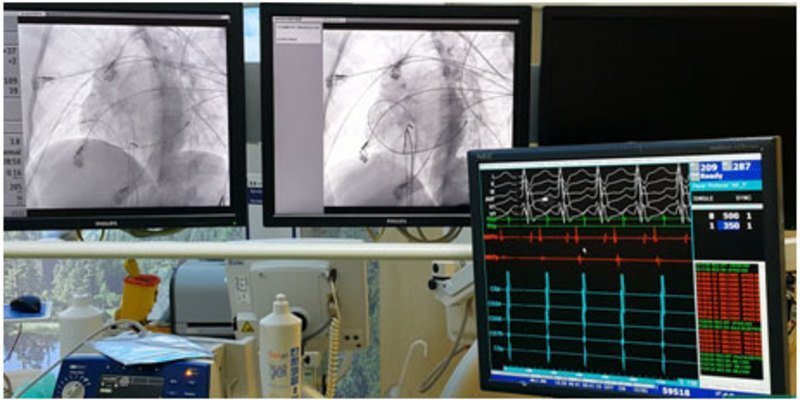Significant progress has been made in the field of cardiology in terms of diagnosis and treatment worldwide in the last 20 years. This progress appears to be particularly evident in interventional cardiology.

- Can you provide information about the current state of diagnosis and treatment of heart diseases in Turkey?
In the field of cardiology, significant progress has been made worldwide in the past 20 years in terms of diagnosis and treatment. This progress is particularly evident in interventional cardiology. As a result, fatal diseases that have persisted for years are being detected early, and patients are rapidly regaining their health through interventional procedures. Turkish cardiologists closely follow these developments and promptly implement them. Some of the key advancements include coronary angiography, angiography of non-cardiac arterial structures, electrophysiology and ablation procedures, pacemaker applications, and non-surgical procedures for closing heart defects and replacing heart valves. In the coming years, various new diagnostic and treatment methods will be introduced with new technologies. As Turkish physicians, we will successfully bring and apply these innovations to our country.
- Could you briefly describe the medical procedures you have performed related to the diagnosis and treatment of heart diseases?
At TOBB University, our center in the field of Cardiology performs all diagnostic and treatment procedures enabled by today’s technology with a high success rate. We have become one of the leading centers in Turkey, particularly in the diagnosis and treatment of rhythm disorders, including electrophysiology and ablation procedures, as well as the implantation of pacemakers and ICD devices, due to the high volume of patients we handle. Our Cardiology unit has become well-known for three-dimensional mapping ablation procedures that allow electrophysiological procedures to be performed with less radiation and higher success rates. In addition to procedures aimed at treating rhythm disorders, long-term patient follow-ups also play a significant role. Patient-specific follow-up intervals determined by our center’s physicians have minimized the recurrence of rhythm disorders for our patients. Furthermore, as mentioned earlier, successful implementation of procedures such as coronary angiography, peripheral angiography, non-surgical closure of heart defects, and heart valve replacement is carried out in our clinic.
- Are there any challenges in the pricing or accessibility of diagnostic and treatment services related to heart issues in Turkey? Could you elaborate?
As is known, healthcare in Turkey can be obtained through general health insurance, private health insurance, or individual payment. Our hospital has agreements with general health insurance and many private health insurances, allowing us to provide services to a broad population. General health insurance has limitations on the reimbursement of certain rhythm disorder treatment procedures, such as 3D ablation and freezing ablation, restricting them to 3rd level healthcare centers. Being a university hospital, we provide 3rd level healthcare services, and as a result, we can offer all procedures covered by general health insurance to our patients seamlessly. It is acknowledged that Turkey, spread over a vast geography, faces challenges in delivering expensive and specialized procedures, especially to rural areas. However, when evaluating qualified procedures in terms of cost-effectiveness, it appears more rational to concentrate such procedures in specific centers, allowing patients to access these centers efficiently. As TOBB University Hospital is centrally located in the capital city Ankara, we offer accessibility to health services not only to all parts of Turkey but also to those seeking healthcare from abroad.

